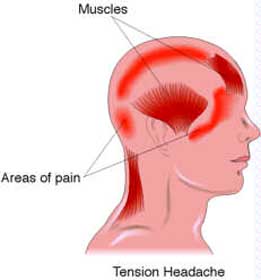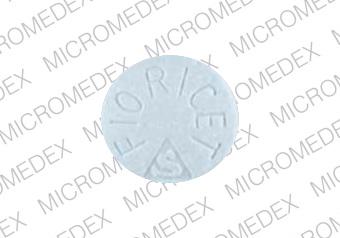
A lot of customers order fioricet online for relief of tension headache. A tension headache is pain or discomfort in your head, scalp, or neck. A tension headache occurs when neck and scalp muscles become tense, or contract. The muscle contractions can be a response to stress, depression, a head injury, or anxiety. A tension headache (tension-type headache) is the most common type of headache, and yet its causes aren’t well understood.
The cause of tension headache is not known. Experts used to think tension headaches stemmed from muscle contractions in the face, neck and scalp, perhaps as a result of heightened emotions, tension or stress. But research suggests muscle contractions aren’t the cause.
The most common theories support a heightened sensitivity to pain in people who have tension headaches and possibly a heightened sensitivity to stress. Increased muscle tenderness, a common symptom of tension headache, may result from a sensitized pain system.
Tension-type headache is a significant cause of sickness absence and impaired ability at work. Tension Headache is classified as a primary headache according to the International Classification of Headache Disorders. It is a very common form of headache and can be:
- Episodic Tension Headache (affects 78% of the population). This occurs on fewer than 15 days each month. It can evolve into the chronic variety.
- Chronic Tension Headache (affects 3% of the population). This occurs on more than 15 days each month and has all the features of the episodic Tension Headache.
Tension headaches can last from 30 minutes to 7 days.
If you have a headache on 15 or more days each month over a 3-month period, you may have chronic tension headaches. This type of headache can lead to stress and depression, which in turn can lead to more headaches.
Triggers of Tension Headaches
A variety of foods, activities, and stress can cause these types of contractions. Some people develop tension headaches after staring at a computer screen for long hours or driving for long periods. Cold temperatures may also trigger a tension headache in some people.
Other factors that may trigger a tension headache include:
- drinking alcohol
- anxiety
- depression
- Poor posture
- Poor sleep
- Stress
- Muscular tightness
- eye strain
- fatigue
- smoking
- a cold or flu
- a sinus infection
- caffeine
- Usually relieved by simple analgesics.
57% Headaches are tension headaches. You can follow the steps here to prevent your headache. What you need more details about prevent tension headache or cure your tension headaches?
Treatment and medicines of Tension Headaches
Some people with tension headaches don’t seek medical attention and try to treat the pain on their own. Unfortunately, repeated use of over-the-counter (OTC) pain relievers can actually cause overuse headaches.
A variety of medications, both OTC and prescription, are available to reduce the pain of a headache, including:
-
- Pain relievers. Simple OTC pain relievers are usually the first line of treatment for reducing headache pain. These include the drugs aspirin, ibuprofen (Advil, Motrin IB, Diclofenac, Paracetamol:others) and naproxen (Aleve). Prescription medications include naproxen (Naprosyn), indomethacin (Indocin) and ketorolac (Ketorolac Tromethamine).
- Combination medications. Aspirin or acetaminophen or both are often combined with caffeine or a sedative drug in a single medication. Combination drugs may be more effective than are single-ingredient pain relievers. Many combination drugs are available OTC.
- Triptans and narcotics. For people who experience both migraines and episodic tension headaches, a triptan can effectively relieve the pain of both headaches. Opiates, or narcotics, are rarely used because of their side effects and potential for dependency.

- Fioricet fioricet is a very effective headache reliever. Fioricet is consist of butalbital, apap, and caffeine.Acetaminophen is a pain reliever and fever reducer. Butalbital is in a group of drugs called barbiturates. It relaxes muscle contractions involved in a tension headache. Caffeine is a central nervous system stimulant. It relaxes muscle contractions in blood vessels to improve blood flow.Fioricet is used to treat tension headaches that are caused by muscle contractions
Even if you are taking tension headache medicines, you still need manage your headaches. Home treatment may help you avoid headaches. You can:
- Try to reduce stress.
- Make sure you sleep, exercise, and eat on a regular schedule.
- Make sure you practice good posture. Stand and sit up straight.
- Try not to strain your eyes when you use your computer.
- Get treatment for depression or anxiety if you have those health problems.
- Try using a headache diary. Every time you get a headache, write down the date, the time, and what you were doing and feeling before your headache started. This may help you and your doctor find out what is causing your headaches. Then your doctor can use the diary to plan your treatment.